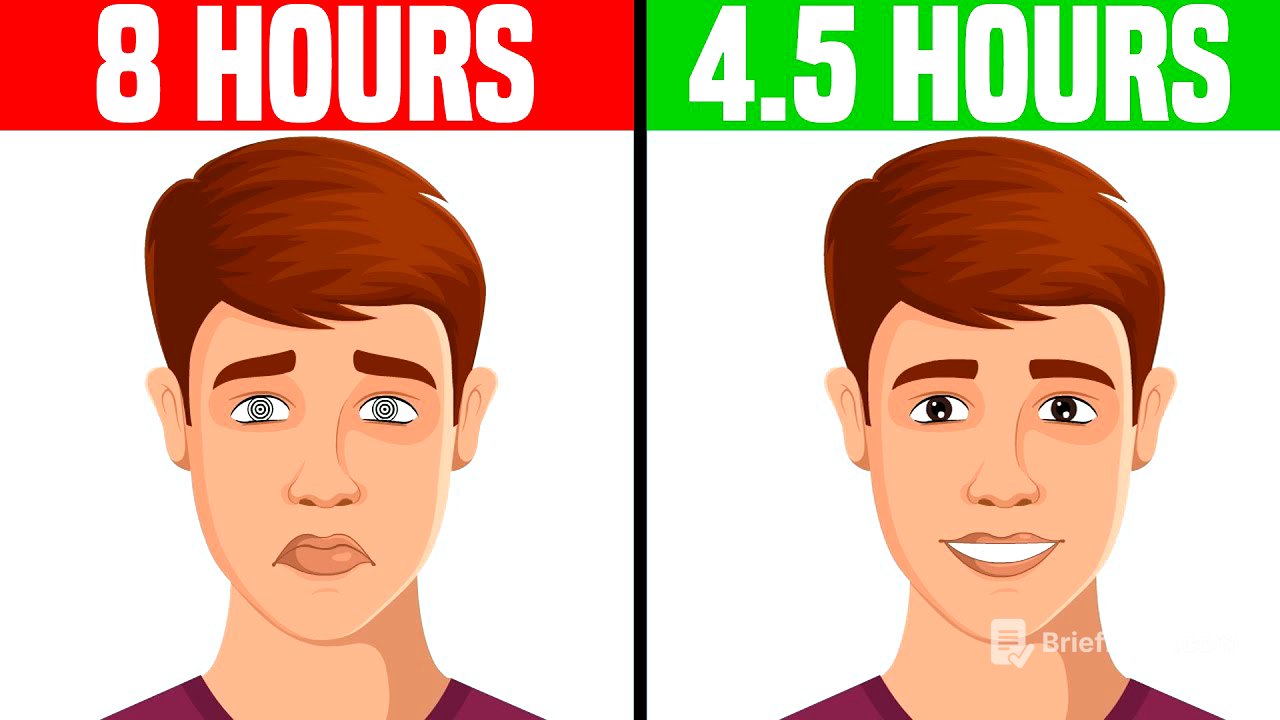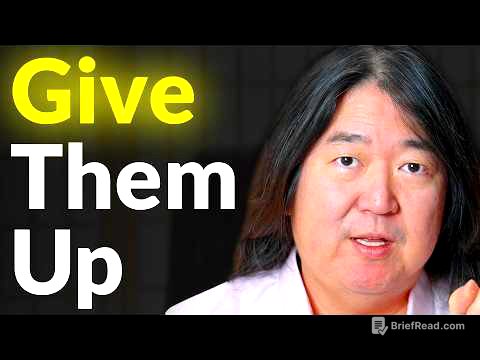TLDR;
Alright, so this video busts some common sleep myths, yeah? It talks about how the whole "8 hours of sleep" thing isn't a hard and fast rule, how cheating your sleep cycle messes you up, and why you might be dozing off in meetings. It also touches on different sleep cycles like monophasic and biphasic, different types of insomnia, and how falling asleep anywhere isn't something to brag about. Plus, it clears up the deal with sleep as you get older, the ideal room temperature for sleep, and whether you can actually get too much sleep.
- The "8-hour rule" isn't for everyone; some folks need way less.
- Losing even an hour of sleep regularly adds up and makes you tired.
- Falling asleep in boring situations isn't always about being bored; you might just be sleep-deprived.
- Your brain's always working, even when you're sleeping.
- Monophasic sleep (one long sleep) isn't the only way to go; biphasic (splitting sleep with naps) can be better for some.
- Insomnia isn't just about struggling to fall asleep; it can also mean waking up too early or too often.
- Falling asleep anywhere isn't a flex; it could mean you're not getting enough sleep.
- Older people don't necessarily need less sleep.
- A cooler room is better for sleep than a warm, cozy one.
- You can overdo it on sleep, and it can mess with your brain.
The Golden Rule of Sleep [0:11]
So, the video starts by tackling this idea that everyone needs exactly eight hours of sleep, no more, no less. Turns out, that's not really true. Most people do best with somewhere between seven and nine hours, but it depends on things like when you hit the sack, how tired you are, and how fast you doze off. And get this, some people have a rare gene that lets them run on just four or five hours of sleep a night! For most of us, that'd be a nightmare, but for them, it's totally normal. So, yeah, eight hours is a good guideline, but everyone's different, innit?
Cheating Your Cycle [1:27]
This part's about how you can't really cheat your sleep. Like, if you keep cutting your sleep short by an hour or so each night to get more stuff done, it's gonna catch up to you. By the end of the week, you'll basically be a whole night of sleep in the hole, and you'll feel it. You'll be less energetic, less motivated, the whole shebang. So, don't try to skimp on sleep, yeah?
Sleeping at Your Desk [1:59]
Ever been in a meeting and your eyelids start getting heavy? You're fighting it, pinching yourself, the works, but you still start nodding off? People might think you're just bored or lazy, but that's not necessarily the case. Feeling bored and feeling sleepy are two different things. The real reason you're falling asleep is probably that you're just not getting enough sleep in general. You're staying up too late, waking up too much during the night, something's messing with your sleep, and that's why you can't keep your eyes open.
The Sleeping Brain [3:02]
A lot of people think sleep is like a vacation for your brain, a chance for it to just chill out. But actually, your brain's working the whole time you're asleep. Your body might be out of it, but your brain's busy logging new memories, processing your emotions, and detoxing your system. So, yeah, sleep relaxes your body, but your brain's still on the job.
The Monophasic Sleep Cycle [3:49]
This section talks about different ways people sleep. Most of us do what's called "monophasic" sleep, which means we sleep in one big chunk at night. It's convenient for people with regular work schedules and might lower your risk of sleep deprivation. But it doesn't work for everyone. Some people do better with "biphasic" sleep, which means splitting your sleep into two parts, like five or six hours at night with a nap during the day. Apparently, some studies suggest humans might be naturally inclined to biphasic sleep. Napping can also boost your memory, alertness, and focus. And then there are even more out-there sleep cycles, like the "everyman" and "uberman" cycles, with multiple naps throughout the day. The point is, there's no one-size-fits-all when it comes to sleep.
One Type of Insomnia [6:50]
The video then talks about insomnia. Most people think it just means having trouble falling asleep, but it's more complicated than that. Some insomniacs can fall asleep quickly but wake up a bunch of times during the night. Others wake up super early and can't get back to sleep. So, yeah, all insomniacs struggle with sleep, but they don't all struggle in the same way.
Falling Asleep Anywhere [7:39]
Some people brag about being able to fall asleep anywhere, like in their office chair or at the dinner table. But that's not always a good thing. Your body's not supposed to just conk out at the drop of a hat. If you're randomly falling asleep in weird places, it could mean you're just seriously sleep-deprived. So, while it might make for a funny story, it's not something to be proud of.
Aging Sleep Cycles [8:22]
Another myth is that older people need less sleep. It's true they tend to wake up earlier, but there's no real proof they don't sleep as much. Kids and teenagers need extra sleep, but once you're an adult, your sleep cycle stays pretty consistent, from your 20s all the way to your 80s. So, even if your sleep schedule shifts around a bit, the amount of sleep you need should stay about the same.
Warm and Cozy [9:00]
Everyone likes to be warm and cozy when they go to bed, right? But too much warmth can actually mess with your sleep. Studies show that hotter temperatures can lower the efficiency of your sleep. You actually sleep better in colder environments. Colder temperatures make you more alert in the morning and relax the muscles that cause snoring and sleep apnea. So, yeah, being warm and cozy is nice, but a cooler room might give you better sleep.
Never Too Much Sleep [9:39]
Finally, the video tackles the idea that you can never get too much sleep. Turns out, that's not true either. Sleeping for 10 or 12 hours on the weekends might sound great, but it can actually be bad for you. A big study found that getting too much sleep can mess with your memory, attention, and reasoning skills. So, next time you have the chance to sleep in, think about how it might be affecting your brain.









